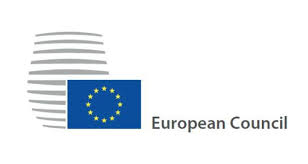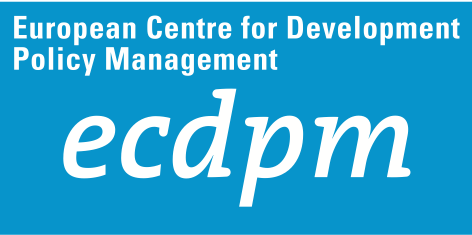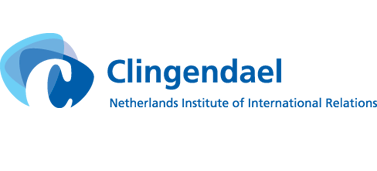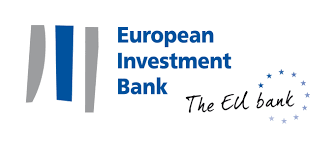Impact of the COVID-19 Pandemic on Trade and Development

The coronavirus disease (COVID-19) no longer dominates the news. Other crises and their devastating consequences are capturing the world’s attention. However, COVID-19 has been the health and economic crisis of a century, generating severe setbacks and disruptions.
Staying on Course in troubled Waters

This book is a selection of HR/VP Josep Borrell's writings in 2021. They focus on how the European Union dealt with the challenges of a more competitive world during the second year of the pandemic. They are not intended to be exhaustive, but to provide an account of the European ‘footprint’ on this year’s events. We hope it will give the reader an idea of how the EU has tried to stay on course in troubled waters through its foreign and security policy.
Development Co-operation Report

This is the OECD’s annual flagship report on development co-operation. For more than 50 years, the Development Co-operation Report has brought new evidence, analysis and ideas to the Development Assistance Committee (DAC) and the international community more broadly, shaping policy reform, behaviour change and promoting best practices in development co-operation. Each year the report analyses a fresh policy issue that is timely, relevant or challenging for development co-operation policy and finance. In addition, the Development Co-operation Profiles detail aggregate and individual trends in policies, allocations and institutional set-up for a broad range of providers, including members of the OECD and its Development Assistance Committee (DAC), other countries and philanthropic foundations.
G7 Leaders’ Communiqué - Executive summary

We, the Leaders of the Group of Seven (G7), met in Elmau, Germany, on 26-28 June 2022, were joined by the Leaders of Argentina, India, Indonesia, Senegal and South Africa, as well as Ukraine.
At a time when the world is threatened by division and shocks, we, the G7, stand united. We underscore our resolve to, together with partners, jointly defend universal human rights and democratic values, the rules-based multilateral order, and the resilience of our democratic societies. In doing so, we will address the key challenges of our time:
AgrInvest-Food Systems Project – Leveraging private finance for sustainable agrifood value chains in Burkina Faso, Ethiopia, Kenya and Niger

This technical note was written by the European Centre for Development Policy Management (ECDPM) as part of the project “AgrInvest-Food Systems: Enabling inclusive and efficient private sector investment in agri-food systems”, implemented by the Food and Agriculture Organization of the United Nations (FAO) in partnership with the ECDPM. The AgrInvest-Food Systems Project (AgrInvest-FS) aims at attracting private investment into agrifood systems aligned with the Sustainable Development Goals (SDGs) by leveraging public funds.
The note applies a systematic approach to the five agrivalue chains over the four countries covered in the AgrInvest-FS project, to identify relevant financing instruments and relevant types of financing institutions, which could potentially be interested in financing a segment of the value chain.
Supporting adaptation in African agriculture – A policy shift since the EU Green Deal?

Communities in sub-Saharan Africa are experiencing the most severe droughts in decades, impacting livestock and crop production. In 2019, the EU presented plans to increase adaptation finance in Africa under the EU Green Deal. This paper questions whether the Green Deal and Global Europe, the EU’s instrument for neighbourhood, development and international cooperation, have led to increased political support for climate change adaptation for agriculture to the benefit of smallholder farmers in sub-Saharan Africa. Or is the EU repackaging what already existed?
Answering this complex question means looking at potential shifts in four areas related to EU development, cooperation and finance: (1) narrative as expressed in recent policies and strategies towards Africa and the new programming documents; (2) financing modalities and instruments; (3) partnerships with EU members states, the private sector and development finance institutes; and, (4) implementation of projects in the period 2021-2022.
L’intégration régionale en Afrique de l’Ouest : Chevauchements inutiles ou options nécessaires ?

Ce document analyse et met en lumière les intérêts et les jeux et enjeux autour de deux organisations régionales qui se chevauchent en Afrique de l’Ouest : La CEDEAO (Communauté économique des États de l’Afrique de l’Ouest), qui compte quinze membres, et l’UEMOA (Union économique et monétaire ouest-africaine), dont les huit membres sont également membres de la CEDEAO. Nous explorons l’interaction des mandats formels et des structures de coopération des deux organisations, en examinant leur histoire, leur légitimité et les intérêts des États membres. Nous nous concentrant particulièrement sur le commerce régional.
Politiques incohérentes ou réalités politiques? Les impératifs de la politique commerciale et industrielle du Nigéria

La position du Nigéria en matière d’intégration régionale peut sembler incohérente, bien qu’il ait ratifié la Zone de libre-échange continentale africaine et qu’il se soit engagé à réaliser une union douanière par le biais de la CEDEAO. Par exemple, en 2019, il a unilatéralement fermé ses frontières terrestres avec les pays voisins, provoquant des perturbations majeures dans les réseaux commerciaux régionaux. Cela a, à son tour, eu un impact négatif sur les efforts de facilitation du commerce promus par les partenaires de développement pour assurer la circulation fluide des marchandises à travers les frontières.
The Russians are coming! The Russians are coming? Russia’s growing presence in Africa and its implication for European policy

The growth of Russia’s presence across Africa over the last decade has generated significant international concern, further exacerbated after Moscow’s invasion of Ukraine. Russia’s engagement can affect the interests and policies of the European Union (EU) and its member states (MS) in Africa. How should European policymakers understand these developments and respond to them? To answer this question, this report looks at Russia’s engagement in Africa, reaching three main conclusions.
First, Moscow’s engagement with Africa has so far remained limited as compared to that of other global players, particularly in the economic domain. The current level of (media) attention devoted to Russia’s role in Africa is thus not supported by sufficient evidence of its actual engagement in the continent. At the same time, however, the growth of Russia’s presence is a real trend.
EIB Global Report: The Impact and the Story

In the European Investment Bank's (EIB) Global Report: The Impact and the Story, subjects that are relevant to the bank's work in Africa include resilience to the current global crises, vaccine coverage in the region, development finance in support of economic dynamism in sub-Saharan Africa and credit accessibility in the formal versus the informal sector.




